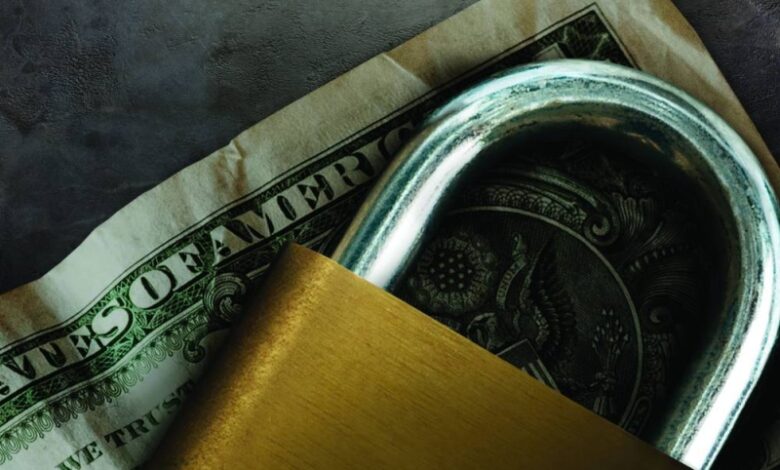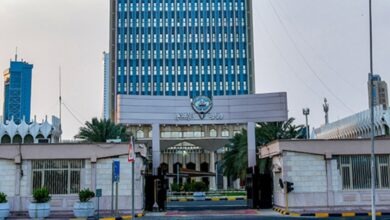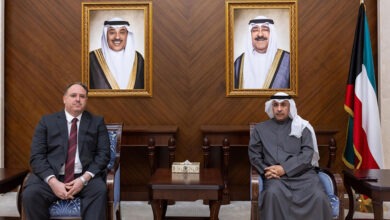Kuwait limits dollar sales to debt, investment or import needs
The Central Bank of Kuwait has directed local banks to only provide dollars for legitimate business purposes, particularly for non-traditional values, ensuring that any hard currency sales align with the customer's actual needs.

• The Central Bank has no minimum threshold for dollar transactions, requiring banks to verify the purpose of any request, even for amounts as low as $10,000, with a focus on ensuring withdrawals align with approved uses, especially for sums over $50,000.
The Central Bank of Kuwait has instructed all local banks not to provide any dollars purchased from it to corporate or individual customers unless the funds are allocated for legitimate business purposes, particularly for non-traditional values. It emphasized the need to ensure that any hard currency sales align with the customer’s actual needs, the Al Rai newspaper reported.
The Central Bank has previously emphasized that banks do not supply dollars to exchange companies unless the amounts are designated for their core activities. However, the new development is that after a recent meeting, banks were instructed to rigorously verify the purpose of any dollar withdrawals funded by the Central Bank. This policy applies to all customers, including exchange companies, other entities, and individuals.
Banks can continue to purchase dollars to meet customer needs
Sources confirmed that the Central Bank informed banks they can continue purchasing dollars to meet customer needs through its regular windows, without any changes to the current process.
Foreign exchange operations will proceed as usual, provided it is verified that the liquidity is directed towardsits intended purpose, such as financing investments, settling hard currency obligations, or supporting import operations, among other legitimate customer needs. Banks are instructed not to approve dollar withdrawals unless they are justified.
The sources noted that this regulatory move aims to prevent the misuse of foreign currency—typically provided by the Central Bank at relatively lower rates than the open market—for unauthorized operations outside the designated business activities.
This mechanism aligns with the practices of central banks in the region that maintain fixed exchange rates with another currency, offering rates lower than the market value when funds are used for specific, approved activities.
Regarding the scope of the dollar amounts covered by this restriction, the sources explained that there is no minimum threshold. Banks may inquire about the purpose of any request, even for amounts as low as $10,000.
According to the regulatory directive, all customer data related to dollar transactions will be uploaded to the Central Bank, but banks will place greater emphasis on verifying that the purpose of withdrawals matches the approved use, typically starting with amounts of $50,000 or more.
Customers must provide documentation for dollar withdrawals
Traditional dollar amounts will continue to be disbursed based on the type of customer, with common reasons such as travel for education, health, tourism, or other acceptable personal matters being accepted. For larger amounts of hard currency, the customer must first provide documentation indicating the purpose of the funds.
If the requested amounts are for speculative activities ‘or for investment or commercial purposes in the case of exchange companies’, the bank must refrain from providing the liquidity.
However, if the customer is considered special and of particular importance, the bank may provide the required dollar amounts from outside the “central” channel, using its own resources, whether from its stock, purchases from the open market, or other options.
The sources emphasized that Kuwait does not face a shortage of foreign currency and, in fact, enjoys high surpluses, as the majority of the state’s revenue comes from oil, which is paid in dollars. This liquidity is further supported by the state’s foreign assets reserves.
Closing banking loopholes
Sources explained that banks ensure any dollars purchased from the Central Bank are directed towards legitimate business purposes, as part of a protective measure within the broader framework of enhancing the effectiveness of monetary policy tools. This aims to combat speculative currency operations and undue pressures, such as the recent practice where some customers obtained loans in dinars and later converted them into hard currency.
It was noted that this directive from the Central Bank is not the first of its kind, as similar measures have been implemented previously. However, the new regulatory tightening appears to be an effort to close any banking loopholes that may have occurred in this regard.












